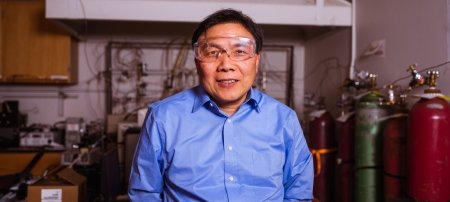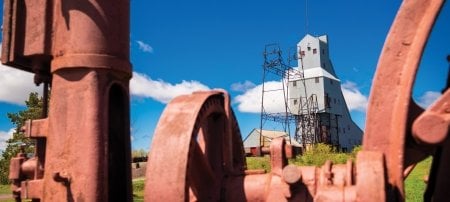Sweden's Transition to Renewable Fuels: Hear How It's Being Done
In 1996, the southeastern Swedish city of Växjö pledged to become free of fossil fuels by 2050. Realizing that it couldn't reach such a lofty goal in one leap, the town established intermediate steps, such as halving carbon emissions per capita by 2010. So far, the city has reduced carbon emissions to 3.5 tons per person (a 25 percent reduction) and has the lowest level of any urban area in Europe. Sweden now produces 25 percent of its energy from renewable sources (the United States is at 3 percent).
How did Växjö do it?
On Tuesday Feb. 26, Michigan Technological University and Michigan State University’s Renewable Fuels Working Group is hosting a delegation from Sweden at a public seminar in Escanaba. Representatives of Sweden's energy, forest and bioenergy agencies, as well as private industry, will talk about "Sweden’s Remarkable Transition to Renewable Fuels: Can It Happen Here, Too?"
The seminar will be at Bay de Noc Community College, 2001 North Lincoln Road, Escanaba, from 10 a.m. to noon.
"Sweden has been actively working on developing biorefineries for more than 10 years and is getting ready to build commercial-sized facilities," says Raymond Miller, MSU Upper Peninsula Forest Properties Manager who is based at the Upper Peninsula Tree Improvement Center in Escanaba. "The United States has built some simple corn ethanol plants, but only now has begun to consider what it will take to build biorefineries. Michigan has the fifth largest forested area of any state, a vital agricultural sector and a broad manufacturing industry. Learning from and collaborating with Swedish scientists and industry can help Michigan be a bioeconomy leader."
Michigan Tech Vice President for Research David Reed was instrumental in arranging a Michigan delegation visit to Swedish biofuel facilities last summer. Says Reed: “In Sweden, they have made great progress in diversifying their energy sector and increasing the use of renewable energy sources. They are world leaders in this area that is also of critical importance to the United States. Working together, we can take advantage of their experience and adapt it to our own circumstances as we strive to increase our renewable energy sources.”
Växjö's wood-burning combined heat and power plant is a large part of the reason for the city's miniscule carbon output. Fueled by woodchips and other wood waste from area sawmills, the plant provides heat, hot water and electricity to 95 percent of the city's homes. The plant is highly efficient, and almost no wasted power goes up the smokestack in the form of chemical gas. As a result, there's no odor and only a wisp of steam.
"Everything relevant to the bioenergy chain can be found in and around Växjö, from the forest equipment to the combined heat and power plant," says Hans Gulliksson, project manager of the Energy Agency for Southeast Sweden, who is one of the presenters. "We firmly believe in what we are doing and are happy to talk to people about what we have achieved and how we have done it.”
Both Reed and Miller were part of the Michigan contingent that traveled to Sweden last August with Gov. Granholm and Michigan Economic Development Corporation officials and other MSU and Michigan Tech scientists. The group met with Gulliksson several times while in Sweden.
In November, Michigan State and Michigan Tech formalized an agreement to work together to support the developing renewable fuels industry in the state.
There is no fee to attend the seminar, and no reservations are required. For more information, contact the Upper Peninsula Tree Improvement Center at 906-786-1575 or uptic@msu.edu.
Michigan Technological University is an R1 public research university founded in 1885 in Houghton, and is home to nearly 7,500 students from more than 60 countries around the world. Consistently ranked among the best universities in the country for return on investment, Michigan's flagship technological university offers more than 185 undergraduate and graduate degree programs in science and technology, engineering, computing, forestry, business, health professions, humanities, mathematics, social sciences, and the arts. The rural campus is situated just miles from Lake Superior in Michigan's Upper Peninsula, offering year-round opportunities for outdoor adventure.




Comments